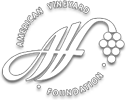Factors Affecting Sugar Utilization and Rate of Fermentation
Protracted or stuck fermentations are a recurring problem in the wine industry. Nutritional supplementation often stimulates fermentation and can reduce the incidence of problem fermentations. Fermentation rate decreases as a consequence of a drop in sugar transport capacity. Sugar transporters are the key site of control of flux through glycolysis. The goal of this research program is to determine which glucose transporters are expressed during grape juice fermentation and to define the mechanisms of regulation of transporter activity. In addition, we are also investigating nutritional and environmental factors that affect fermentation rate. Last year we discovered that a suboptimum potassium to proton ratio results in a sluggish fermentation. Potassium is know to be stimulatory to fermentation rate and it has been postulated that this is a cell surface phenomenon, that is, that potassium directly stimulates glucose transport. Given that some rootstocks now used commercially in California result in low petiole potassium, we proposed investigating the effect of the potassium to proton ratio in natural juices on fermentation rate using commercial yeast strains. We also explored the effect of other ions on fermentation rate. We discovered that the potassium effect is not mediated at the level of the cell surface, and that once the fermentation is stuck, addition of potassium is unable to re-initiate fermentation. Re-inoculation also does not re-initiate fermentation even with the addition of potassium.

